- Home
- Robin Cook
Intervention sam-9 Page 4
Intervention sam-9 Read online
Page 4
As Sana retrieved her key card, she considered their departure, scheduled for early the next morning. Before the trip she’d been disappointed that Shawn had been unwilling to take her to Luxor to see the tombs of the nobles and the Valley of the Kings. Without regard for her feelings, he’d said he’d already seen them and couldn’t take the additional time off. But now that her DNA conference was over, Sana was relieved they hadn’t planned on the detour. She hadn’t been working at Columbia University College of Physicians and Surgeons long enough to feel secure, especially with several key experiments under way.
She entered her room in one continuous swift motion, and before the door had time to close, she had undone the top two buttons of her blouse and was halfway to the bathroom. Spotting Shawn, she pulled herself up short as he leaped to his feet. They eyed each other. Sana was the first to speak as she took in a magnifying glass in Shawn’s white cotton-gloved hands. “What are you doing here? Why aren’t you out at the pool?”
“You could have knocked!”
“I need to knock on my own hotel room’s door?” she questioned in a mildly sarcastic tone.
Shawn chuckled, recognizing the unreasonableness of what he’d said. “I suppose that does sound a bit unrealistic. At least you didn’t have to come barging in here like there was a fire, scaring me out of my wits. I was concentrating.”
“Why aren’t you at the pool?” Sana repeated. The door slammed on its own behind her.
“It’s our last day, if you haven’t forgotten.”
“I haven’t forgotten,” Shawn said, a gleam coming into his eye. “I’ve been busy.”
“So I see,” Sana said, eyeing the gloves and the magnifying glass. She went back to unbuttoning her blouse and headed into the bathroom. Shawn came to the threshold.
“I just made what I thought was my biggest archaeological find in that antiquities shop I told you about. The one where I got the prehistoric Egyptian pot.”
“Excuse me,” Sana said, easing Shawn back from the threshold so she could push the door almost closed. She didn’t like to change in front of anyone, even Shawn, especially since their level of intimacy had faded of late. “I remember,” she called out. “Does it have something to do with your white gloves and the magnifying glass?”
“It certainly does,” Shawn said to the door. “The concierge helped me out with the gloves and the magnifying glass. Talk about your full-service hotel!”
“Are you going to tell me about your find, or do I have to guess?” Sana asked, now interested. When it came to his profession, Shawn didn’t exaggerate. For sure, he’d made a number of important finds digging in multiple locations throughout the Near East earlier in his career. That was before becoming a high-ranking curator whose responsibilities had devolved to be more supervisory and fund-raising than fieldwork.
“Come out, and I’ll show you.”
“Is it not as good as you hoped? I noticed you used the past tense.”
“At first I was disappointed, but now I think it is even a hundred times better than my initial impression.”
“Really?” Sana questioned. With her bathing-suit bottoms halfway up her thighs, she stopped. Now her curiosity had truly been piqued. What could Shawn possibly have found to warrant such a description?
“Are you coming out? I’m dying to show you this.”
Sana wiggled her bottom into the suit and adjusted the crotch, then checked herself in the full-length mirror on the back of the bathroom door. She was reasonably happy with what she saw. A devoted runner, she had a slim, athletic figure and short, dirty-blond but healthy hair. Gathering up her clothes, she opened the door. Depositing the clothes carefully on the bed, she walked to the desk.
“Here. Put these on,” he said, handing her a second pair of freshly laundered white gloves. “I got them especially for you.”
“What is it, a book?” Sana asked, once she got her hands into the gloves. She could see an ancient-looking leather-bound volume sitting on the corner of the desk.
“It’s called a codex,” Shawn said. “It’s an example of the first books that superseded the scroll, since you can get more in it and access various portions of the text far easier.
What makes it different from a real book, like the Gutenberg Bible, is that it was done completely by hand. Handle it carefully! It’s more than fifteen hundred years old. It had been preserved for more than a millen nium and a half by being sealed in a jar buried in the sand.”
“My word,” Sana said. She wasn’t sure she wanted to hold something quite so old for fear it might disintegrate in her hands.
“Open it!” he urged.
Gingerly, Sana folded back the cover. It was stiff, and the binding audibly complained.
“What’s the cover made of?”
“It’s kind of a leather sandwich stiffened with layers of papyrus.”
“What are the pages made out of?”
“The pages are all papyrus.”
“And the language?”
“It’s called Coptic, which is kind of a written version of ancient Egyptian using a Greek alphabet.”
“Truly amazing!” Sana said. She was impressed but wondered why Shawn had said it was such an important find for him. Some of the statuary he’d found in Asia Minor seemed far more substantial.
“Can you see that a large section of the book has been torn out?”
“I can. Is that significant?”
“Very much so! Five of the original, individual texts of this particular codex had been roughly removed in the 1940s to sell them in America. Other pages had been rumored to have been removed to start kitchen fires in a fellahin mud hut.”
“That’s terrible.”
“Indeed. Many an academic has cringed at the thought.”
“I also notice that the inside of the front cover has been opened up along its edge.”
“I did that myself very carefully with a steak knife about an hour ago.”
“Was that wise? I mean, considering the age of this thing. I imagine there are more appropriate tools than a steak knife.”
“No, it probably wasn’t wise, but I did it because I couldn’t help myself. At that point I was horribly disappointed with what’s in the codex. I had expected a virtual gold mine, and instead I’ve rescued the equivalent of the output of one of the world’s first copy machines.”
“I don’t think I’m following you,” Sana admitted. She handed the ancient book back to Shawn to absolve herself from responsibility. She pulled off the gloves. His excitement was palpable. She was more than intrigued.
“I’m not surprised.” He took the codex and replaced it to its former position on the corner of the desk. In the middle of the desk, under the glare of both a desk lamp and a floor lamp, were three individual pages held flat by various objects, including a pair of Shawn’s ancient-coin cuff links. The pages were heavily creased from being folded up for thousands of years. It too was papyrus, like the pages in the codex, but it seemed to be older. The edges had blackened to the point of appearing burnt.
“What’s this?” Sana asked, pointing at the papyri sheets. “A letter?” She could see the first page had a possible addressee, the last a signature.
“Ah, the scientific mind immediately homes in on the crux of the matter,” Shawn said with glee. Palms down, fingers spread, he reverently passed his hands over the pages as if worshipping them. “It is indeed a letter, a very special letter written in AD 121, by a septuagenarian bishop of the city of Antioch by the name of Saturninus. It was a reply to a previous letter written to him by a bishop of Alexandria named Basilides.”
“My gosh!” Sana exclaimed. “That’s the beginning of the second century.”
“Quite,” Shawn remarked, “and within a century of Jesus of Nazareth. It was a fractious time for the early Church.”
“Is either man well known?”
“A good question! Basilides is well known among biblical scholars, Saturninus much less so, although I’ve come acros
s references to him on a couple of occasions. As this letter substantiates, Saturninus was a student or an assistant of Simon the Magician.”
“That’s a name I’ve heard in my childhood.”
“No doubt. He was and is the quintessential Sunday-school bad guy, as well as the father of all heresies, at least according to a number of the early Christian Church fathers. In point of fact his attempt to buy the ability to heal from Saint Peter is the origin of the word simony.”
“What about Basilides?”
“He was a very busy man here in Egypt—in Alexandria, to be precise—and a prodigious writer. He’s also given credit as one of the first Gnostic thinkers, particularly for putting a distinctive Christian stamp on Gnosticism by centering his Gnostic theology on Jesus of Nazareth.”
“Help me,” Sana said. “I’ve heard the term Gnosticism, but I wouldn’t be able to define it.”
“Simply speaking, it was a movement that predated Christianity, ultimately merging aspects of pagan religions, Judaism, and then Christianity into a single sect. The name Gnosticism came from the Greek word gnosis, meaning intuitive knowledge. To the Gnostics, knowledge of the divine being was the end-all, and those who had the knowledge believed they had the spark of the divine to the point that people like Simon the Magician actually thought he was, at least partially, divine.”
“And you complain that my DNA science is complicated,” Sana scoffed.
“This isn’t all that complicated, but back to Basilides. He happened to be one of the first Gnostics also to be a Christian, although the name Christian didn’t yet exist. He believed Jesus of Nazareth was the awaited Messiah. Yet he didn’t believe that Christ had come to earth to redeem mankind from sin by suffering on the cross, like most of the rest of his fellow Christians did. Instead, Basilides thought that Jesus’ mission had been for the purposes of enlightenment, or gnosis, to show humans how to break free of the physical world and achieve salvation. The Gnostics like Basilides were really high on Greek philosophy and Persian mythology, but they were all very down on the material world, which they thought entrapped humankind and was the source of all sin.” Sana bent over the letter to look at it more closely. From a distance the printing appeared uniform, as if done by a machine, but on closer inspection, slight variations proved that it had been done by hand. “Is this Coptic as well?” she asked.
“No, the letter is in an ancient Greek,” Shawn said, “which isn’t surprising. Greek, even more than Latin, was the lingua franca of the day, particularly in the eastern Mediterranean. As the name suggests, Alexandria was one of the centers of the Hellenistic world established by Alexander the Great’s military feats.” Sana straightened back up. “Was this letter part of the codex or merely stuck into the book as an afterthought?”
“It certainly wasn’t an afterthought,” Shawn said cryptically. “It was done very deliberately, but not for the reason you might imagine. Remember how I described the codex’s cover? Along with other scraps of papyrus, this letter was sandwiched in behind the leather to make it what we would think of as a hardcover book. I’d heard that had been done with other volumes of this particular treasure trove of codices.”
“You found more than one?”
“No, I came across only this one codex. But I recognized it instantly. Here, sit down.
I’ve got some explaining to do, especially since we’re not going home tomorrow as planned.”
“What are you talking about?” Sana demanded. “I’ve got to get back to rescue several experiments.”
“Your experiments are going to have to wait, at least for a day, or maybe two days at most.” Shawn placed his hand on Sana’s shoulder in an attempt to ease her down onto the couch.
“You can wait if you want, but I’m going back,” she said, making a point of pushing his hand off her shoulder. She wasn’t going to allow herself to be bullied.
For a moment wife and husband glowered at each other. Then both relented without a harsh word.
“You’ve changed,” Shawn commented at length. He acted surprised rather than angry at her unexpectedly rebellious announcement.
“I think it’s safe to say you’ve changed as well,” Sana responded. She made a distinct effort to keep any suggestion of irritation out of her voice. She didn’t want to get into a long, drawn-out emotional discussion at the moment. Besides, he was right. She had changed—not markedly, but in a very real way, a response to his changing.
“I don’t think you understand,” Shawn said. “This letter may very well lead me to the apotheosis of my career. To take advantage of it, I’m going to need your help for a day—
two, tops. I have to see if the author, Saturninus, was telling the truth. I cannot imagine why he would have lied, but I have to be sure. To do that, we’re going to be flying to Rome early tomorrow morning.”
“Do you need my help literally or figuratively?” Sana questioned. To her it made a difference.
“Literally!”
Sana took a breath and eyed her husband. He seemed sincere, which changed things in her mind. He’d never actually asked for her help before. “All right,” she said. She sat down. “I’m not yet agreeing, but let’s hear your explanation.” With rekindled enthusiasm, Shawn grabbed the desk chair and planted it in front of Sana. Sitting down, he leaned forward, eyes sparkling. “Have you ever heard of the Gnostic Gospels found here in Egypt at Nag Hammadi in 1945?” Sana shook her head.
“How about the book The Gnostic Gospels by Elaine Pagels?” Sana shook her head again with a touch of irritation. Shawn was always asking her if she read this treatise or that one, and invariably she’d have to say no. As a molecular biologist, she’d not had a lot of time to take many liberal-arts courses, and often felt inferior as a result.
“I’m surprised,” Shawn said. “Elaine Pagels was a bestseller, a real commercial hit that put Gnosticism on the map.”
“When was it published?”
“I don’t know, around 1979, I guess.”
“Shawn, I was born in 1980. Give me a break!”
“Right! Sorry! I keep forgetting. Anyhow, her book was about the significance of the Nag Hammadi find, which were thirteen codices, including this one I’ve come across today. This book was originally part of that find that in one fell swoop doubled the extant books about early Gnostic thought. In many ways the find was in the same league as the Dead Sea Scrolls found in Palestine two years later.”
“I’ve heard of the Dead Sea Scrolls.”
“Well there are people who believe the Nag Hammadi texts are equivalently important for understanding religious thought around the time of Christ.”
“So, this book you found today is one of those codices found in 1945.”
“Correct. It’s known, appropriately enough, as the Thirteenth Codex.”
“Where are the others?”
“They’re here in Cairo at the Coptic Museum. Most had been confiscated by the Egyptian government after a few had been sold. Those that had been sold eventually made their way back here where they belong.”
“How did number thirteen get separated from the others?”
“Before I answer that, let me give you a thumbnail sketch of the story of the discovery of the Nag Hammadi library. It’s fascinating. Two young fellahin boys named Khalifah and Muhammed Ali were out at the edge of the desert near modern-day Nag Hammadi, supposedly looking for a kind of fertilizing soil known as sabakh. Where they were looking was at the base of a cliff called Jabal al-Tarif, which, by the way, is honeycombed with caves, both natural and ancient man-made. Their method was to blindly poke deep into the sand with their mattocks. I don’t know how that helps, but to their surprise on the day of the discovery, instead of coming across the sabakh they were looking for, one of them heard a suspicious hollow clunk when he pounded his mattock into the sand. He cleared away the sand and came across a sealed earthenware jar about three to four feet in height. Hoping to find some ancient Egyptian antiquities, they found the codices instead.”
“Did they have any idea of the value of what they’d found?”
“Not a clue. They carried the cache home but dumped it next to the family’s cooking oven, where the mother used some of the papyri pages to start the family’s cooking fires.”
“What a tragedy.”
“As I said, there are academics who still wince at the thought today. Anyway, friends and neighbors of the boys, including a Muslim imam who was also a history teacher, suspected they were valuable and quickly intervened. The codex that I came across today worked its way down the Nile to reach Cairo via various antiquities dealers. There the five of its missing texts, which also turned out to be the most extraordinary, were removed and smuggled out to the United States. Luckily, by that time Egyptian government agents had been alerted, and they then managed to buy or confiscate the remaining codices, including eight of the pages removed from the thirteenth. The thirteenth itself they didn’t find, and somehow it got lost in someone’s antiquities inventory to await a safe time to fence it. My guess would be that it somehow got forgotten until recently, when my friend Rahul got access to it. My appearance today was clearly serendipitous. He’s in contact with a number of curators around the world.
He wouldn’t have had a problem disposing of it.”
“But isn’t it against the law to sell it or even own it?”
“Absolutely!”
“Doesn’t that bother you?”
“Not really. I think of myself as its rescuer. I don’t intend to keep it. My goal from the beginning was to be the person to publish the contained texts and reap the professional benefits. Unfortunately, that is no longer much of an issue.”
“Why not? How many texts are remaining in the codex?”
“Quite a number.”
“What exactly are these Nag Hammadi texts?”
“They are Coptic copies of Greek originals with names like the Gospel of Thomas, the Gospel of Philip, the Gospel of Truth, the Gospel to the Egyptians, the Secret Book of James, the Apocalypse of Paul, the Letter of Peter to Philip, the Apocalypse of Peter, so forth and so on.”

 Shock
Shock Mutation
Mutation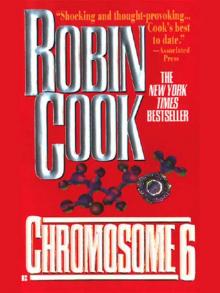 Chromosome 6
Chromosome 6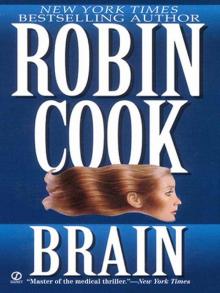 Brain
Brain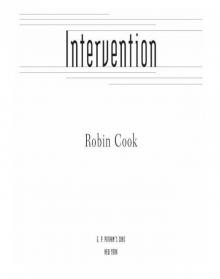 Intervention
Intervention Invasion
Invasion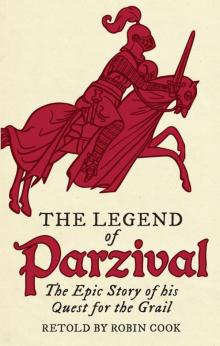 The Legend of Parzival: The Epic Story of His Quest for the Grail
The Legend of Parzival: The Epic Story of His Quest for the Grail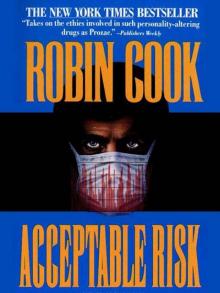 Acceptable Risk
Acceptable Risk Cell
Cell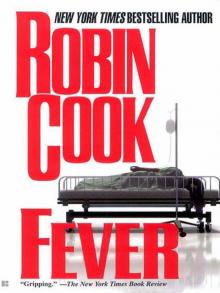 Fever
Fever Death Benefit
Death Benefit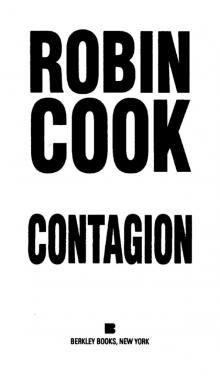 Contagion
Contagion Mindbend
Mindbend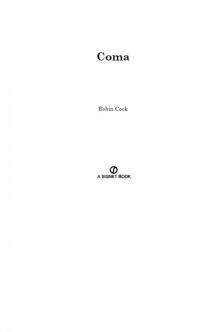 Coma
Coma Vital Signs
Vital Signs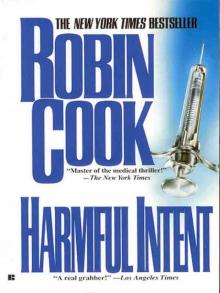 Harmful Intent
Harmful Intent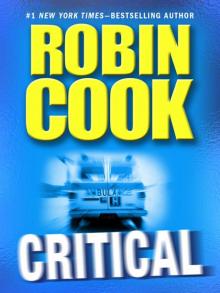 Critical
Critical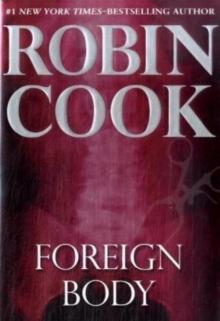 Foreign Body
Foreign Body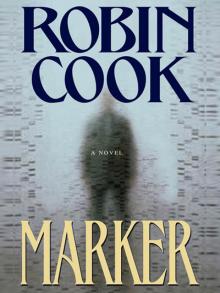 Marker
Marker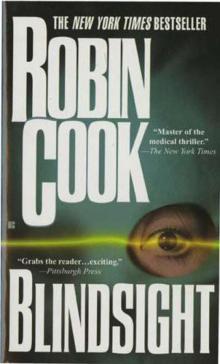 Blindsight
Blindsight Terminal
Terminal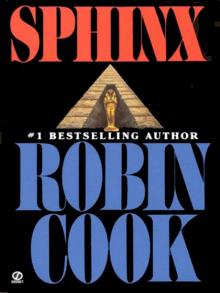 Sphinx
Sphinx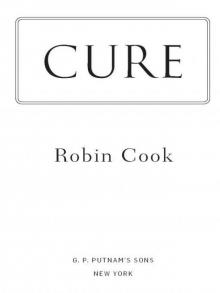 Fatal Cure
Fatal Cure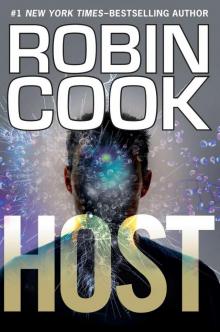 Host
Host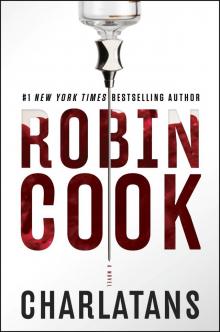 Charlatans
Charlatans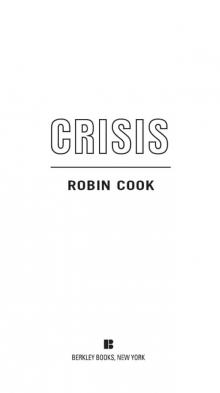 Crisis
Crisis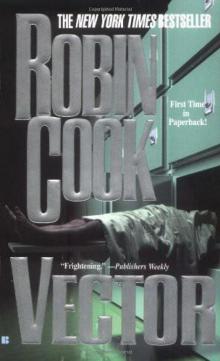 Vector
Vector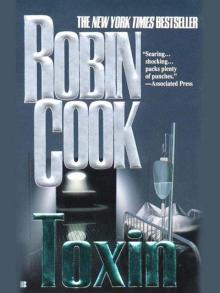 Toxin
Toxin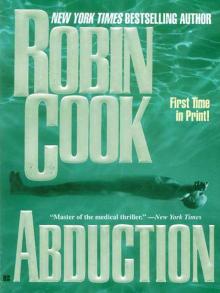 Abduction
Abduction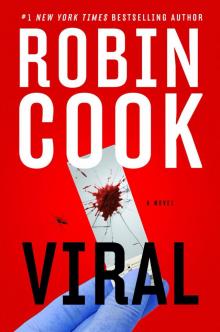 Viral
Viral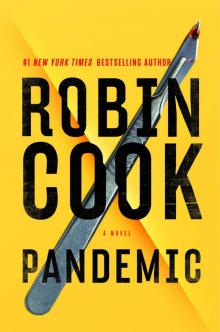 Pandemic
Pandemic Outbreak
Outbreak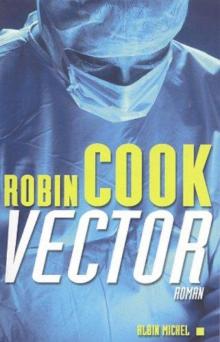 Vector js&lm-4
Vector js&lm-4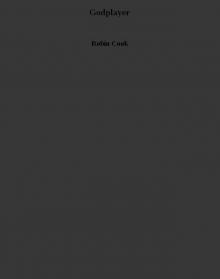 Godplayer
Godplayer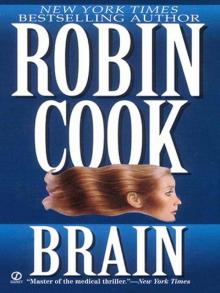 A Brain
A Brain Year of the Intern
Year of the Intern Outbreak dmb-1
Outbreak dmb-1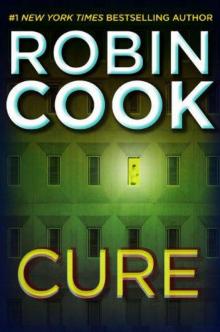 Cure
Cure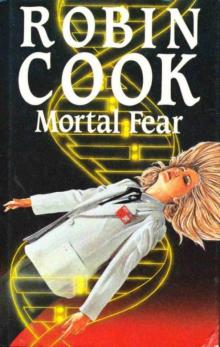 Mortal Fear
Mortal Fear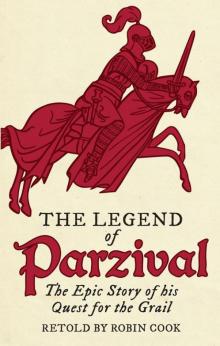 The Legend of Parzival
The Legend of Parzival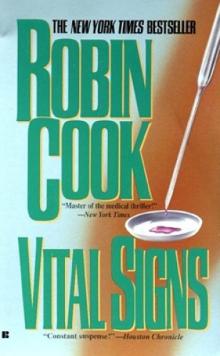 Vital Signs dmb-2
Vital Signs dmb-2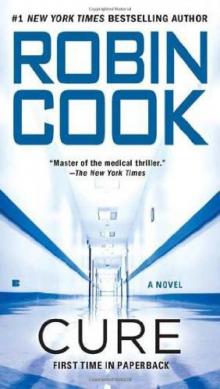 Cure (2010) sam-10
Cure (2010) sam-10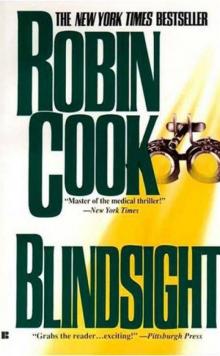 Blindsight sam-1
Blindsight sam-1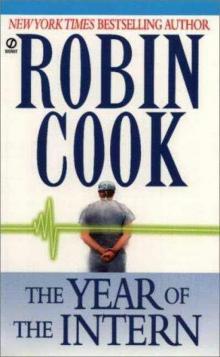 The Year of the Intern
The Year of the Intern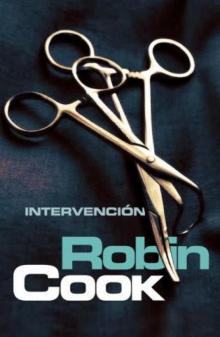 Intervention sam-9
Intervention sam-9 Foreign Body sam-8
Foreign Body sam-8